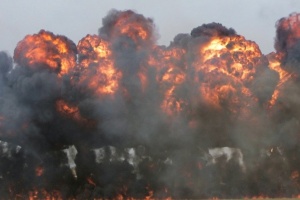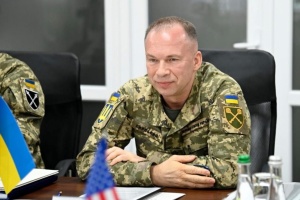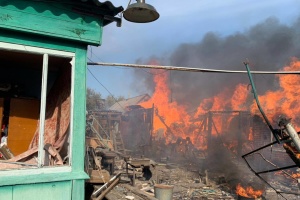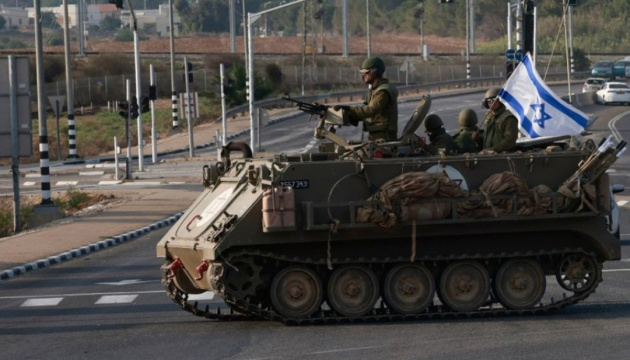
"Yom Kippur War 2": Four Lessons from Israel for Ukraine and World
At the time of writing, four days have passed since the unprecedented terrorist attack by the Palestinian group Hamas on Israel: on Saturday morning, October 7, the country was subjected to massive rocket fire, militants infiltrated the territory in several places, killed hundreds of soldiers and civilians, and took hostages. The Israel Defense Forces responded by launching the Iron Swords anti-terrorist operation. The IDF regained control over all border settlements, and militant facilities in the Gaza Strip are being destroyed.
Of course, it is too early to talk about the consequences of this war. However, the first lessons of what has already happened are already clearly visible.
So, what should we learn from this?
- The state of Israel, its armed forces, intelligence services and intelligence agencies, which are accused of a stunning failure?
- The United States, which is Israel's strategic ally, as well as the entire civilized world?
- Our state - what changes are needed in the tactics and strategy of Ukraine in general and the Armed Forces in particular?
LESSON #1. THE AXIS OF EVIL - RUSSIA, IRAN, DPRK AND CHINA - MUST FINALLY BE STOPPED
Political scientist Volodymyr Fesenko calls the Hamas terrorist attack on Israel a direct consequence of Russia's aggressive war against Ukraine. Putin has already set a precedent for replacing international law with the law of force, the political scientist emphasizes.
"It was he [Putin] who provoked the chaos in international relations. What is happening now in Israel is a copying of Putin's actions, a chain reaction of the policy of resolving interstate problems by force. If Putin is not stopped, then, according to the expert, this chain reaction will continue in different forms and in different regions of the world. And this is a lesson for the international community," emphasizes Mr. Fesenko.
And it should also be a lesson for Israel, including the Netanyahu government.
"Israeli leaders flirted with Putin, demonstrated their neutrality regarding the war between Russia and Ukraine, hoping that this would reduce the risks for Israel. We can see how it ended," the political scientist added.
He recalls that Putin and Russian diplomacy acted as informal mediators in relations between the Palestinians and Israel: "But, as in the relations between Azerbaijan and Armenia, and in the relations between Israel and the Palestinians, Russian mediation leads not to peace, but to a new war."
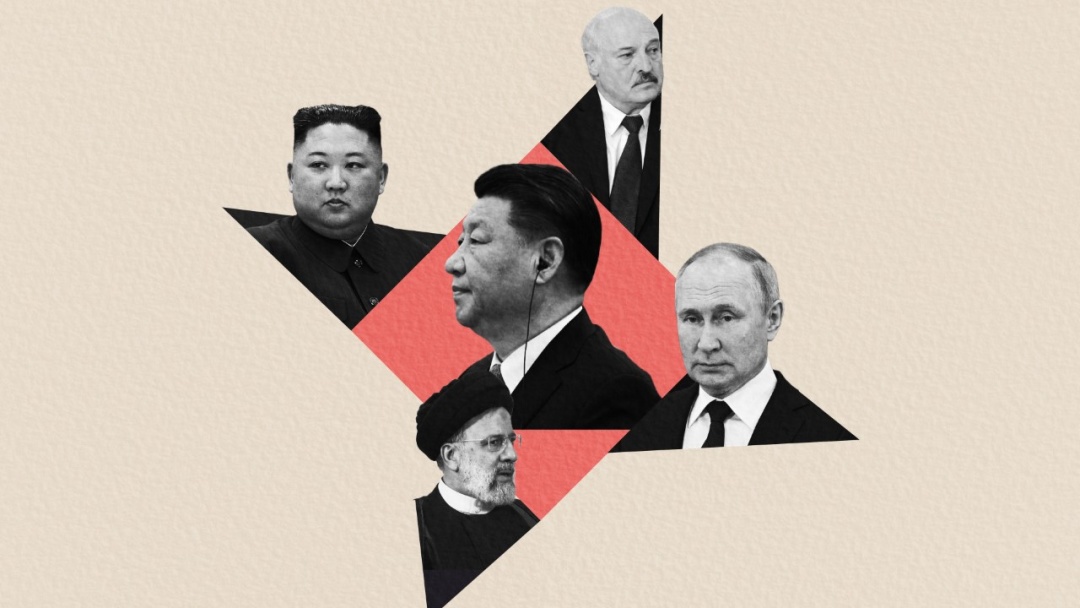
Diplomat Vadym Triukhan believes that the Third World War, which the West is so afraid of, is actually already in full swing. At the same time, it is multilevel and diverse.
"The great war is in Ukraine. Recently it was in Kosovo. Now it is in Israel. It may also break out on the Korean Peninsula. At the same time, there are periodic massive cyberattacks, deliberate efforts to provoke food shortages in the poorest countries of Africa, renewed information attacks on dozens of countries that lead to the rise of right-wing and/or left-wing radical parties, etc." he lists.
And this is just the beginning. While the administration of US President Joe Biden and European leaders repeat like a mantra the dictum that war with Russia is unacceptable, and delay the introduction of truly comprehensive sanctions against Russia and Iran, the Kremlin is working non-stop to implement several tasks:
- to destroy the unity of the democratic world;
- to multiply the production of ammunition (the expert recalls that, for example, Russia already produces about 2 million shells a year, while in the United States this will be possible only after 2025)
- formation of "friendly" political regimes around the world, including among the EU and NATO member states;
- changing public sentiment around the world in its favor.
"The fact that the level of support for Ukraine and/or support for the government's policy of providing military, financial and other support to Ukraine has seriously decreased over the 20 months of the large-scale Ukrainian-Russian war is largely due to the merit of the Russian information troops," says Mr. Triukhan. - "Sadly, the positive achievements in the information warfare during the first months since the invasion of the racists, which Ukraine demonstrated, have come to an end. The Russians have drawn conclusions and again launched a massive attack on the information front."
According to him, it will not be easy.
"It will not be easy to remain the No. 1 priority for the United States, the United Kingdom, Germany and our other partners. This must be realized and appropriate management decisions must be made immediately. The emphasis is on domestic production of ammunition and heavy armored vehicles. At the same time, no matter how cynical it may sound, Ukraine benefits from the scaling up of armed conflicts in the world, which Russia is working on. The brutal terrorist attack on Israel should push the West to take more decisive action against the axis of evil that Russia, Iran, Syria, and North Korea have already constructed, and from which China is already half a step away," the diplomat emphasized.
Mykhailo Honchar, President of the Center for Global Studies "Strategy XXI", said that the events in Ukraine and Israel have become a clear indication that sanctions either do not work at all or work minimally. The main violators of the world order have not only managed to adapt to the restrictions imposed, but have managed to increase their power even more.
"Sanctions regimes, firstly, are introduced with a great delay, secondly, they are reactive rather than proactive, and thirdly, they are not so fatal for the economies of Russia and Iran, rather, they are a state of discomfort, and nothing more," says Mr. Honchar. We must finally move to the regime of total economic isolation of the offending countries by the West. This is the first step."
Second... We must understand that Hamas is a proxy for Iran. And who is helping Iran? Russia. And who is helping Russia? China, although it does it covertly.
"Unfortunately, in the capital of the world's most powerful country, the United States, they do not yet see these chains. The political establishment is still guided by the wrong attitude to solve all problems - the so-called "diplomacy on the table," as it is popularly called in the State Department, the US Security Council, etc. Well, we have once again seen what this "diplomacy on the table" leads to when other players play a completely different game," the expert added.
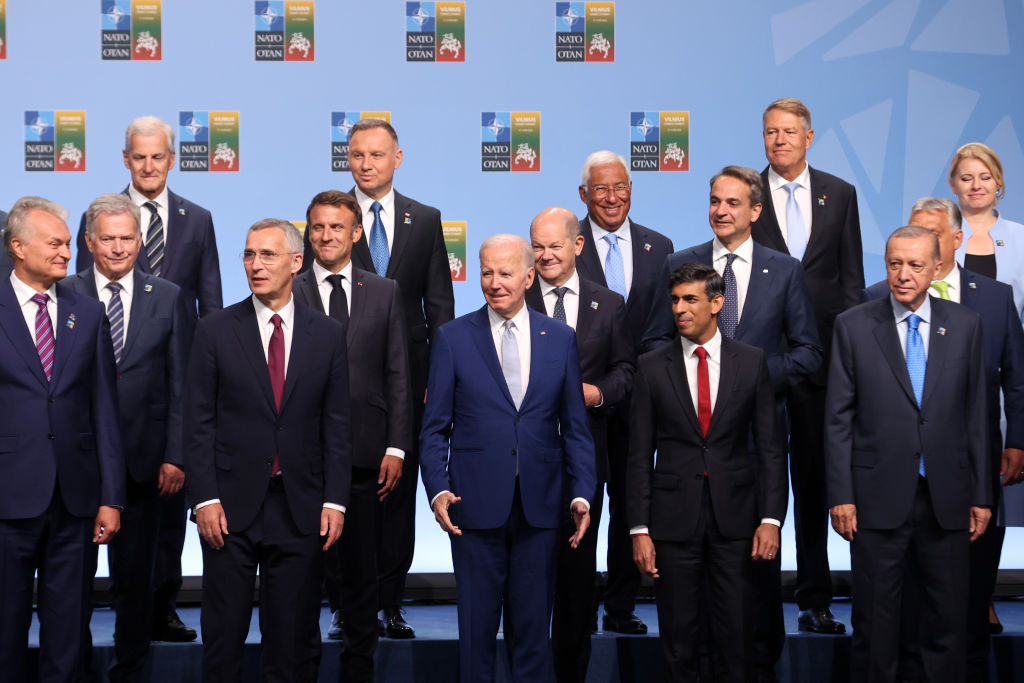
War, tanks, soldiers - that's what is really starting to matter. But it is useless to hope for this, at least for now.
"The West is not ready for this yet, unfortunately. But there are many other things that can be done besides tanks and soldiers. For example, to impose a blockade of the straits - the Danish and Black Sea straits - to prevent any tankers from entering the Baltic and Black Seas to load oil in Russian ports. Can we at least include this option? Or, in principle, we could refuse Russian oil and gas. As Germany's experience shows, this is possible and does not hurt at all. But do they want to? Obviously, no. Because it means going into conflict, and no one wants to go into conflict. Western politicians are still dominated by the approach of tolerance, consideration of alternative opinions, and de-escalation. This needs to be changed. And in this context, not only for our diplomacy, but also for the diplomacy of those few Central European countries, such as the Czech Republic, Poland, and the Baltic states, which are well aware of what is really happening and what can happen next, there is a super-task," Mykhailo Honchar says.
Pavlo Lakiychuk, Head of Military Programs at the Center for Global Studies "Strategy XXI", says: "What is happening in Israel and Gaza is incomparable to the scale of Russian aggression against Ukraine. The potential of the IDF is incommensurate with the capabilities of Hamas, and the factor of surprise is in effect in the first days and weeks."
Having recovered from the first shock, the Israeli Defense Forces have already pushed the militant forces out of the occupied territories, launched massive air strikes on key Hamas military and political targets in the Gaza Strip, and launched a blockade. Obviously, the "hot phase" of the confrontation will end soon enough.
However, the political component of the conflict is much more problematic, and it is likely to develop along an unpredictable trajectory.
"Can we blame the democratic West for putting its head in the sand, hiding from the threats emanating from the 'axis of evil'? From our point of view, yes. From the perspective of the West - not yet. For some people, World War II began in March 1938 [Europe after Hitler's annexation of Czechoslovakia], and for others - only in December 1941 [the United States after the Japanese attack on Pearl Harbor]," states Mr. Lakiychuk.
LESSON 2. THE FAILURE OF THE WORLD'S BEST INTELLIGENCE AGENCIES, BUT IT IS NOT ONLY THEIR FAULT
"The IDF, the Israeli Defense Forces, has been considered one of the most capable armies in the world for more than half a century. Israel's intelligence services - the Mossad foreign intelligence and the AMAN military intelligence - also have a high reputation. Especially the "almighty" Mossad. The more painful for the Israelis is the "goal" from Hamas, the eternal enemy, the main object of intelligence," says Pavlo Lakiychuk.
According to him, the reasons for intelligence failures can be divided into three categories: systemic problems in gathering intelligence, critical errors in its analysis, and ignoring intelligence reports by the top state leadership.
"Therefore, the main question that arises is: Whose failure is it - the intelligence service or the political leadership? Did the Israeli intelligence services know about the preparations for the attack, did they correctly assess its scale, and was the military and political leadership of Israel warned about the possible scenario? Who is responsible for the wrong decisions? From what I can see, the reason for the "October 7 disaster" lies in the contradictions and lack of trust that arose between the Mossad and the current Israeli government," the military expert emphasized.
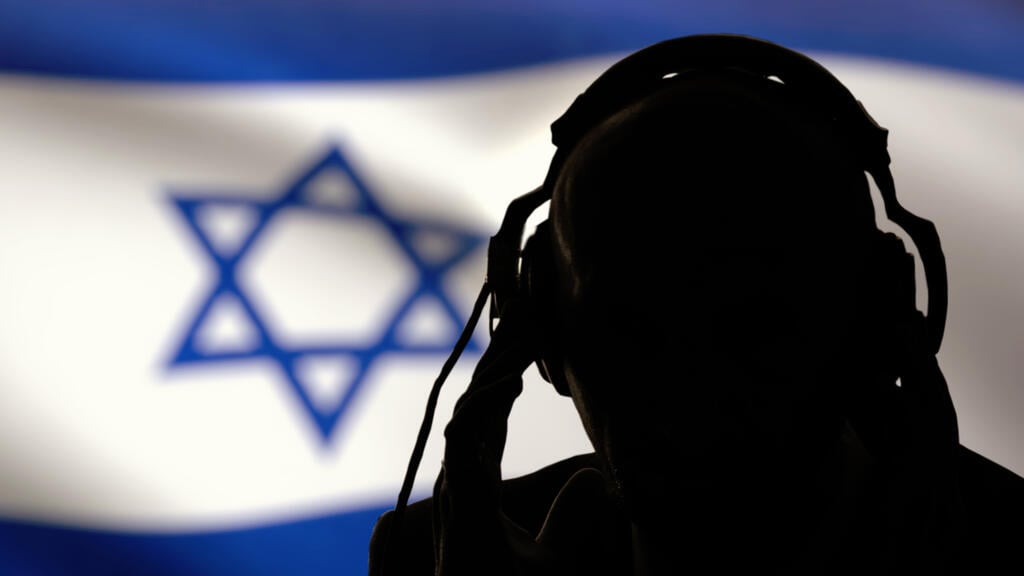
Vadym Triukhan argues that Hamas's preparations for a massive attack on Israel were also seen by the intelligence services of the United States and other leading Western countries: "It can be assumed that the analytical units of the intelligence services of Israel and its allies failed first and foremost, as they incorrectly assessed the level of threats to Israel from Hamas. It should also be noted that the interests of Putin's Russia and Iran, which are actually already in informal allied relations, were not taken into account."
And this is Mykhailo Honchar: "The failure should not be blamed solely on the Israeli special services and intelligence, because the problem is much deeper. As you know, after a series of early elections, Israel is in a deep crisis."
And this crisis has affected not only Israeli politicians, it has permeated virtually the entire society.
"We saw this clearly in the mass demonstrations, unprecedented in their scale, that took place in Israeli cities. The crisis has also affected most state institutions and organizations. And when the country is in a state of internal political chaos, strife, infighting, and personal scores, it is the perfect time for an external enemy to strike. Therefore, I think that the Israeli government and Prime Minister Netanyahu personally bear a lot of responsibility for what happened. Of course, all of this simply could not but provoke problems in the army and in the intelligence community. And a direct consequence of these problems is a sharp decline in their effectiveness," the security relations expert believes.
Mr. Honchar does not rule out that some information from one of the special services could simply "stuck". Or it could have been ignored. Obviously, the forces on combat duty were too relaxed. And there is indeed some truth in this.
During one of his business trips to Israel, an employee of Ukrinform visited Sderot, the same town practically on the border with Gaza, which has been mentioned many times in the front pages of all the world's leading news agencies over the past four days. Here is his direct speech: "A stationary observation post was set up in Sderot - a reinforced concrete structure dug into the ground. Everything was done thoroughly. But - attention - next to it, right on the sand, there was... a white plastic chair, like in a street cafe, and on it, immediately (!) after an enemy rocket attack [flying time to Sderot from the Gaza Strip is 1-2 minutes], a soldier was resting, wearing a green shirt unbuttoned to the navel."
Our colleague shared other similar episodes. But the main emphasis of his stories is on calmness, a habit that Israelis have developed over the years of war. This, in his opinion, is one of the main reasons for what happened in Israel on October 7, 2023.
"Israel was too relaxed. On the eve of the terrorist attack, it was like this: "Is this the first time Hamas is preparing something against us? It's okay, we can handle it. Will they launch their rockets? But we will shoot them all down, as always, because we have the Iron Dome for that," Mykhailo Honchar models the situation. - The problem is not so much that someone overlooked something, but that the public administration system was essentially disorganized. From the outside, it was invisible, but this attack showed that the system was limited in functionality, it did not work as a whole. Now, the "machine" is fully operational, and all protocols are being clearly worked out. However, we are not talking about practicing protocols for prevention, but protocols for minimizing the consequences."
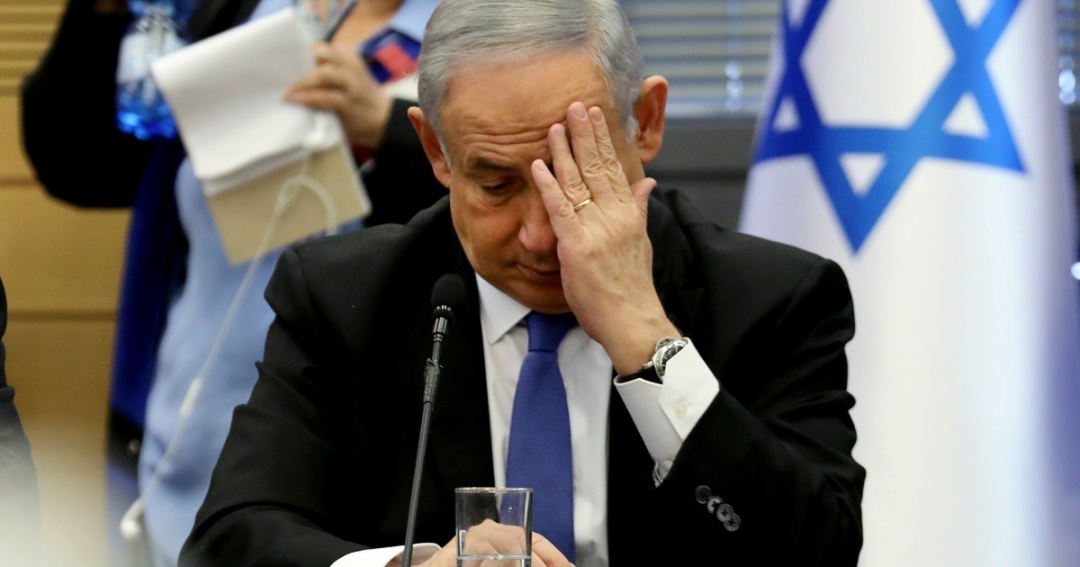
The expert also mentioned Western intelligence: "Not only the Israeli intelligence services, but also the U.S. intelligence services, which traditionally keep a very close eye on everything that happens in the Middle East, especially around Israel, have failed to keep track. Why did this happen, what is the reason? The answer is that there is internal political chaos in the United States, which, as we see, is why many things are not being done now, and strategic things are being put on the back burner. And only some extraordinary events force the White House to feverishly adjust to the necessary algorithm, but now to remedy the situation, instead of anticipating, noticing, and neutralizing the threat in time. I think Iran and Hamas have tracked all of this and concluded that the time has come to strike."
By the way, exactly 50 years ago, in October 1973, the Yom Kippur War was also underpredicted and underestimated by Israel, which was still "resting on its laurels" after its military triumph in the 1967 Six-Day War. Of course, it was understood somewhere that the Arabs might attack Israel again, but the fact that it would happen on October 6, the Yom Kippur holiday...
"The lesson for Israel, the United States, Ukraine, and the entire world is that we should never underestimate the enemy, we should always be on the alert," emphasized Mykhailo Honchar.
LESSON #3. UNITY OF THE GOVERNMENT AND OPPOSITION IN CONFRONTING THE ENEMY
"National security cannot be sacrificed to internal political conflicts. We cannot let external threats fade into the background. Ukraine has no right to repeat Israel's mistakes," says Volodymyr Fesenko.
According to him, the government, the opposition, and civil society in Ukraine must understand that confronting an external enemy is much more important than internal disputes and selfish political interests.
"The key to victory is internal unity. Internal conflicts and political crises are the path to defeat," the political scientist added.
"Israel understands this, and therefore is consolidating - there is information about negotiations between the current Netanyahu government and Benny Gantz's party, and the participation of opposition ministers.
Mykhailo Honchar, President of the Center for Global Studies "Strategy XXI": "We should not just take a close look at what the Israeli government did the very next day after the Hamas attack, but do the same. As you know, Prime Minister Netanyahu invited the opposition to work together, to join forces in confronting the enemy. Of course, we also went through something similar in the early days of the Great War."
But our "unity train" did not run smoothly for long.
"Now, to a certain extent, we can feel an attitude of 'we know everything ourselves, we will do everything ourselves without you'. That is, comments and suggestions from the outside are not taken into account, unfortunately," the expert added.
LESSON 4. WHAT WORKS FOR ISRAEL IS NOT NECESSARILY GOOD FOR UKRAINE
"We have once again seen that the 'Israeli' security model is definitely not suitable for us. There are no alternatives to NATO for Ukraine in today's reality," emphasizes Mykhailo Honchar.
Other experts also agree with him.
Pavlo Lakiychuk: "For us, the main military and political lesson that can already be drawn is that the 'Israeli security model' so stubbornly 'pushed' by our partners does not work by itself. And we must use this argument. No one has yet tried to question whether the principle of Euro-Atlantic solidarity works. Therefore, we must triple our efforts - and we have the right to do so - towards joining NATO."
Volodymyr Fesenko says that for many years we have been held up as an example of the Israeli intelligence services, the Israeli military system, and the state of Israel in general as a military camp that is constantly ready to repel military attacks.
"As it turned out, not everything is so perfect. This is not a reason for gloating. We had many more mistakes of our own - in the 1990s, in the early 2000s, in 2014-15, and before the Russian invasion on February 24, 2022. Especially when we are dealing with such a strong enemy as Russia. And this is a lesson for the future. After some time, the current war will end, but an aggressive enemy will remain on our borders. And we must always be ready for a new attack from the Russians," the political scientist emphasized.
The expert also mentioned the massive Palestinian rocket attack on Israel: "Actually, there are two lessons here. Israel's Iron Dome was not as effective as many thought. And this is against home-made Palestinian rockets. And it's not just the individual holes in the Iron Dome. Most likely, the perfect air defense system simply does not exist in nature when it comes to massive attacks."
The second thing that we hardly ever talk about is that the Palestinians manufactured and launched several thousand rockets in advance and launched them at Israel in one day (or rather, in a few hours) in artisanal and almost clandestine conditions.
"If the Palestinians in the small Gaza Strip, with their limited capabilities, produced and used several thousand rockets at once, why can't we do the same against our enemy? This is not even a question, but a strong suggestion," emphasized Mr. Fesenko.
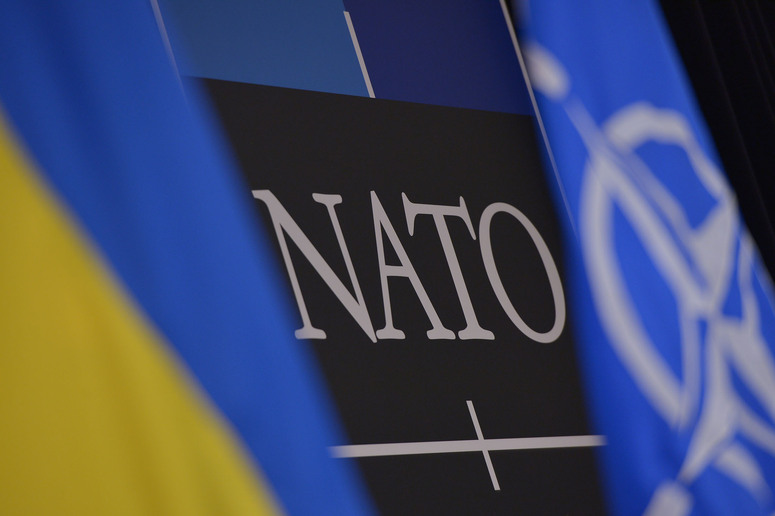
Finally, Vadym Triukhan added that in terms of the peculiarities of the current moment in geopolitics, it is important to have several scenarios of warfare.
"One of them is to deter the enemy in the face of limited supplies of ammunition from our partners and possible massive counterattacks using the tactic of using live meat in unlimited quantities. In addition, we should throw all available resources at countering blackouts, which the russists will be working on as soon as the winter cold sets in in Ukraine," the diplomat summarized.
Myroslav Liskovych. Kyiv

